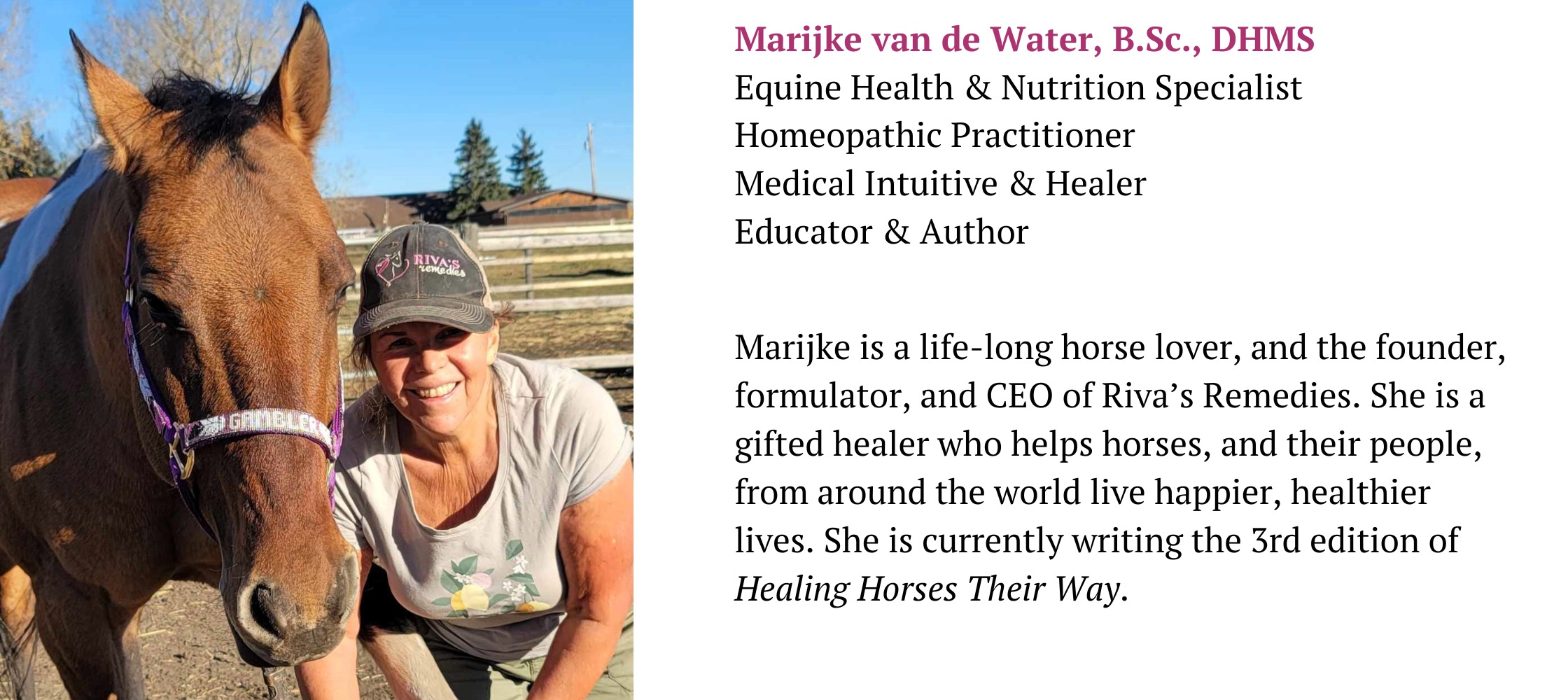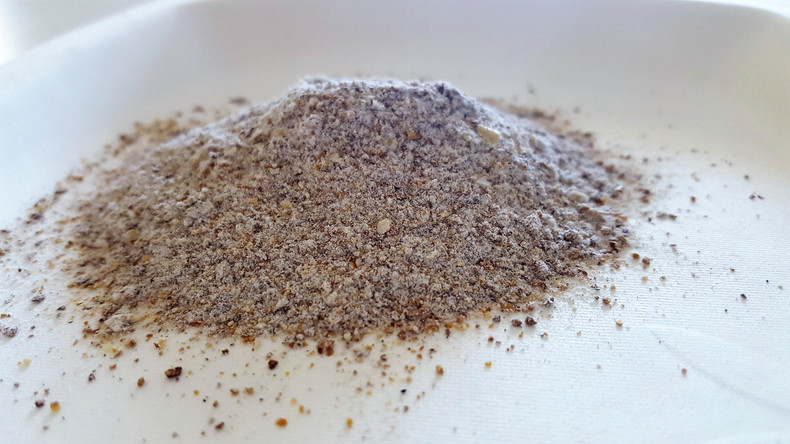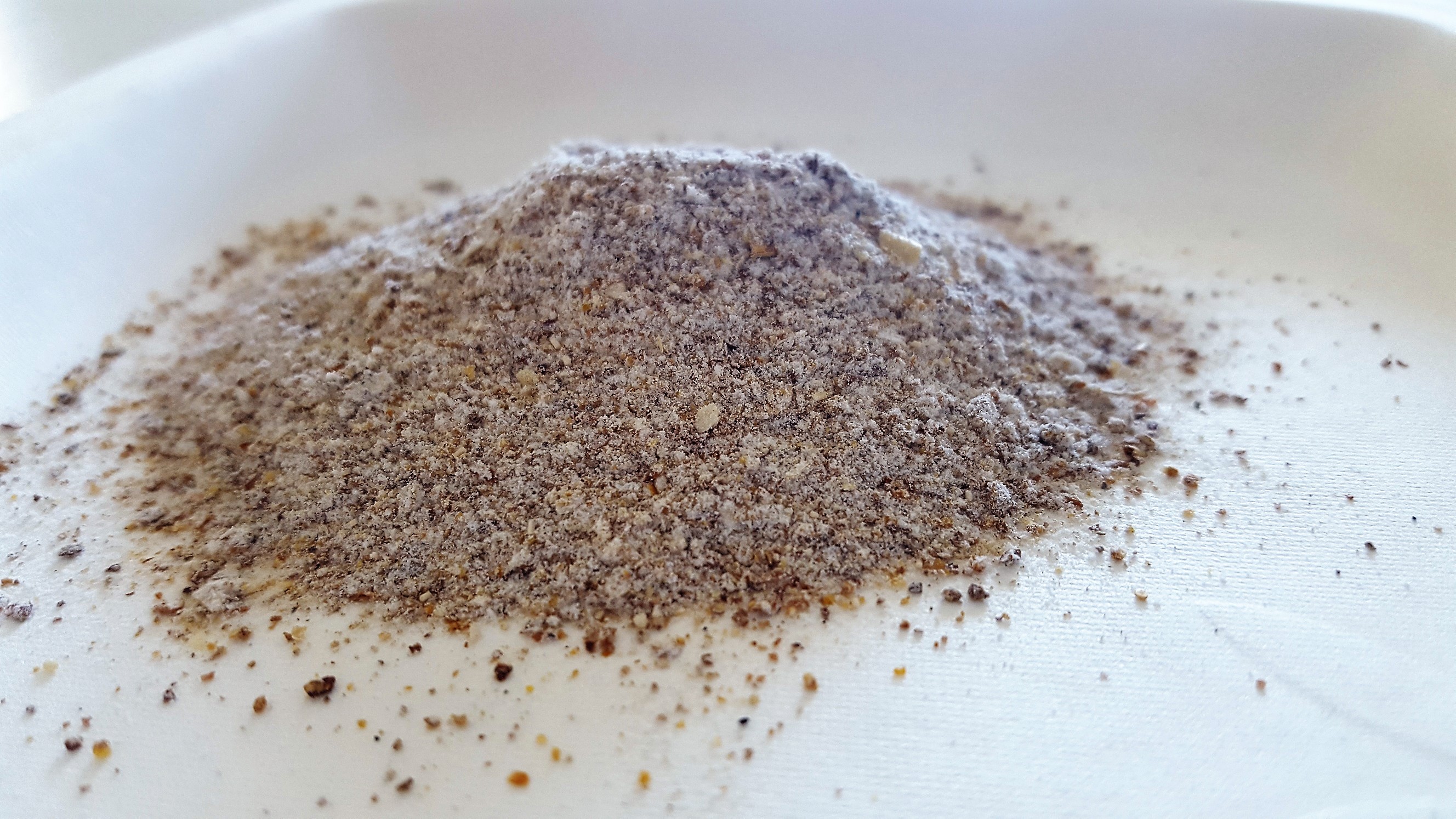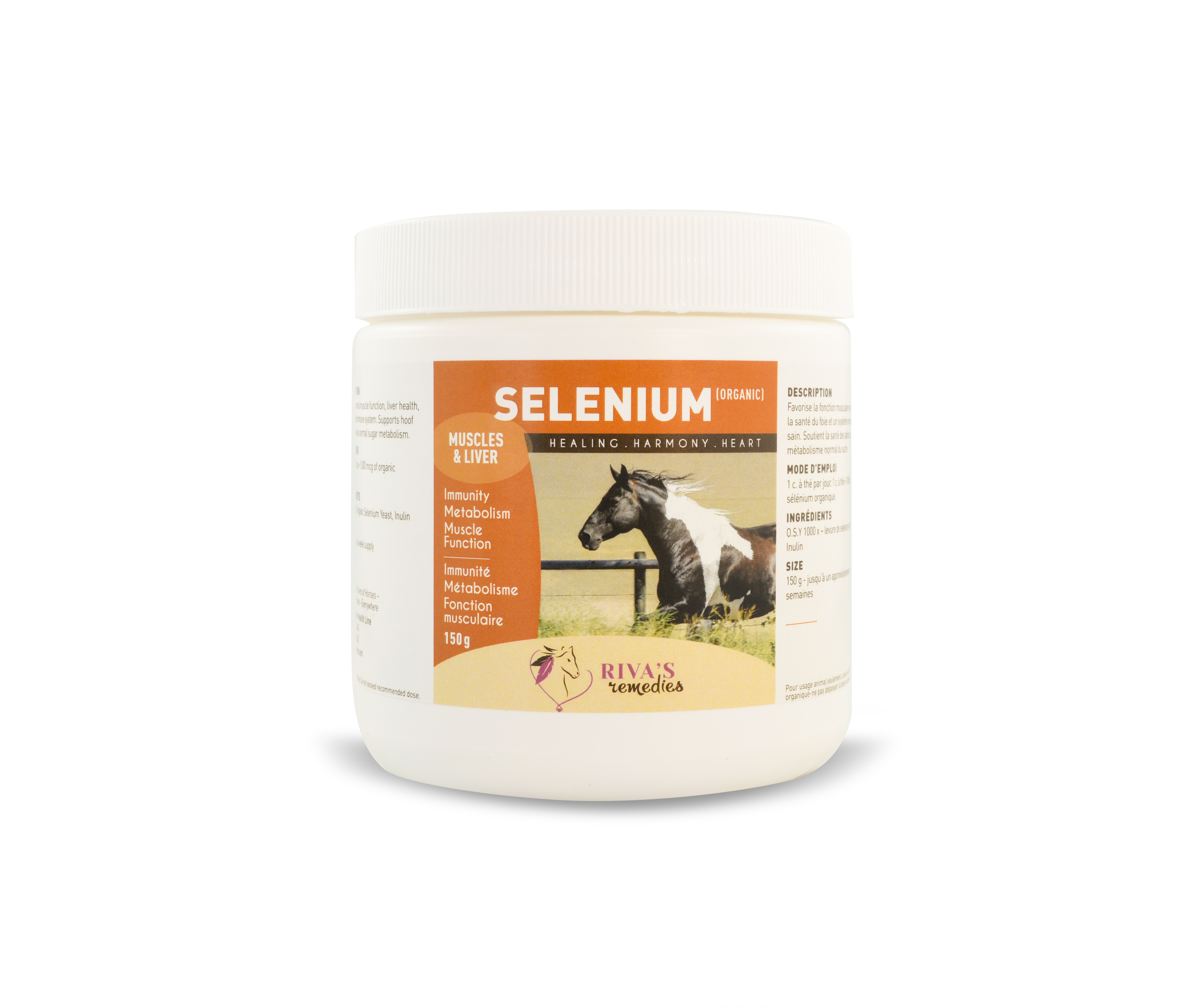Why Selenium Is Important for Horses
Selenium is an essential mineral and anti-oxidant that horses must obtain from their diet to maintain healthy body function. Selenium is important for all horses, no matter the breed, age, activity level, or discipline.
Selenium protects against free radical damage and inflammation, it promotes healthy skin, a normal hair coat, and is a critical nutrient for horse’s hooves. It also supports the immune system and is a key nutrient for muscle strength and performance. It is also necessary for normal thyroid function, sugar metabolism (Insulin Resistance), and energy levels. In addition, the liver requires selenium for its detoxification pathways.
Is Your Horse Deficient in Selenium?
Selenium deficiencies can occur nearly anywhere in the world, since most of the soil is low in selenium. And, despite the fears of many horse owners, selenium deficiencies are far more common than cases of selenium toxicity. In fact, our hair tissue mineral analyses show that between 90 and 95% of all horses are deficient in selenium. Even those horses that are on mineral mixes and commercial grains with added minerals have inadequate levels of selenium. Out of approximately 50 horses we have not received one analysis report with selenium above acceptable levels. Although we did receive results for one human who was selenium toxic due to the anti-dandruff shampoo that she had been using for several years. Many anti-dandruff shampoos contain inorganic selenium.
Deficiency Signs & Symptoms
Common signs of selenium deficiency include weak hoof walls, hoof cracking and horizontal ridging; skin problems and rashes, hair loss (especially from the mane and tail), fatigue, liver toxicity, loss of appetite (especially in younger horses or ponies), muscle weakness, episodes of “tying up” (rhabdomyolysis), and muscle cramps. Selenium deficiencies are also linked to poor thyroid function, Insulin Resistance, and immune dysfunction, as well as various forms of cancer and tumours.
Selenium is particularly important for those horses with heavy metal toxicity since selenium is required for chemical detoxification, especially mercury.
Selenium Supplements – Know the Difference
Selenium can be supplemented in either an organic form or an inorganic form; each form has different molecular structures with different properties including bioavailability, absorption and toxicity.
Inorganic Selenium
Inorganic selenium is the toxic form of selenium and is known as sodium selenite, which is a by-product of the copper or coal mining industry. Inorganic selenium is responsible for all cases of selenium toxicity because it is so poorly metabolized and assimilated. Inorganic selenium toxicity can be caused by grazing in selenium toxic areas, or by over-supplementing with inorganic selenium, as is the form used in many commercial mineral formulas.
Inorganic selenium toxicity can result in dullness, lack of vitality, poor hair condition, poor dental health, poor immunity, loss of hair around the mane and tail, and stiffness and lameness. In cases of chronic selenium toxicity, the hooves are almost always affected and will show deformities, overgrowth, horizontal ridging, and cracking. In severe cases of toxicity the hooves will slough off with loss of the entire hoof wall. However, as discussed above, most selenium-related hoof problems are due to a deficiency, not an excess.
Organic Selenium
Organic selenium is non-toxic and has no known cases of toxicity in horses or people. It is produced by using yeast to incorporate inorganic selenium into amino acids. This process allows the body to absorb, assimilate, and metabolize the selenium far more effectively than the inorganic form. And, because organic minerals have superior biological activity over inorganic minerals, an effective dosage is much lower than it would be for inorganic selenium, or any other mineral for that matter.
When Should You Supplement Your Horse with Organic Selenium
A selenium supplement should be considered in those horses with the following conditions:
- Equine Metabolic Syndrome
- Insulin Resistance
- Thyroid dysfunction
- Heavy Metal Toxicity
- Hoof Weakness or Lameness
- Mercury poisoning
- Skin problems
- Fatigue and low energy
- Poor hair coat or hair loss
- All immune conditions
- Cancer
- Muscle weakness, cramping, or tension (combine with vitamin E)
Dosing
Given the number of horses that are selenium deficient and the number of horses that are receiving poor quality
selenium, there are few horses that will not benefit from organic selenium supplements. The recommended dosage for organic selenium is 1,000 mcg daily (= one tsp). Add to the feed for 4-6 weeks; and then use a maintenance dose of 1 tsp – twice per week. However, if selenium has demonstrated obvious benefits to your horse’s health it is safe to give this daily dose for a longer duration. To prevent over-dosing, ensure that there are no other sources of selenium in your horse’s diet.
Selenium Promotes Health
It is clear then that many, if not most of our horses, are deficient in this very important mineral that affects so many different body systems. This is due to the lack of natural levels of dietary selenium in their feed, as well as the widespread practice of feeding the inferior inorganic form of selenium. Ensure that your horse is getting adequate amounts of organic selenium to promote strong hooves, healthy skin and hair, improved sugar metabolism, good liver function, optimum immunity, and strong muscles.





